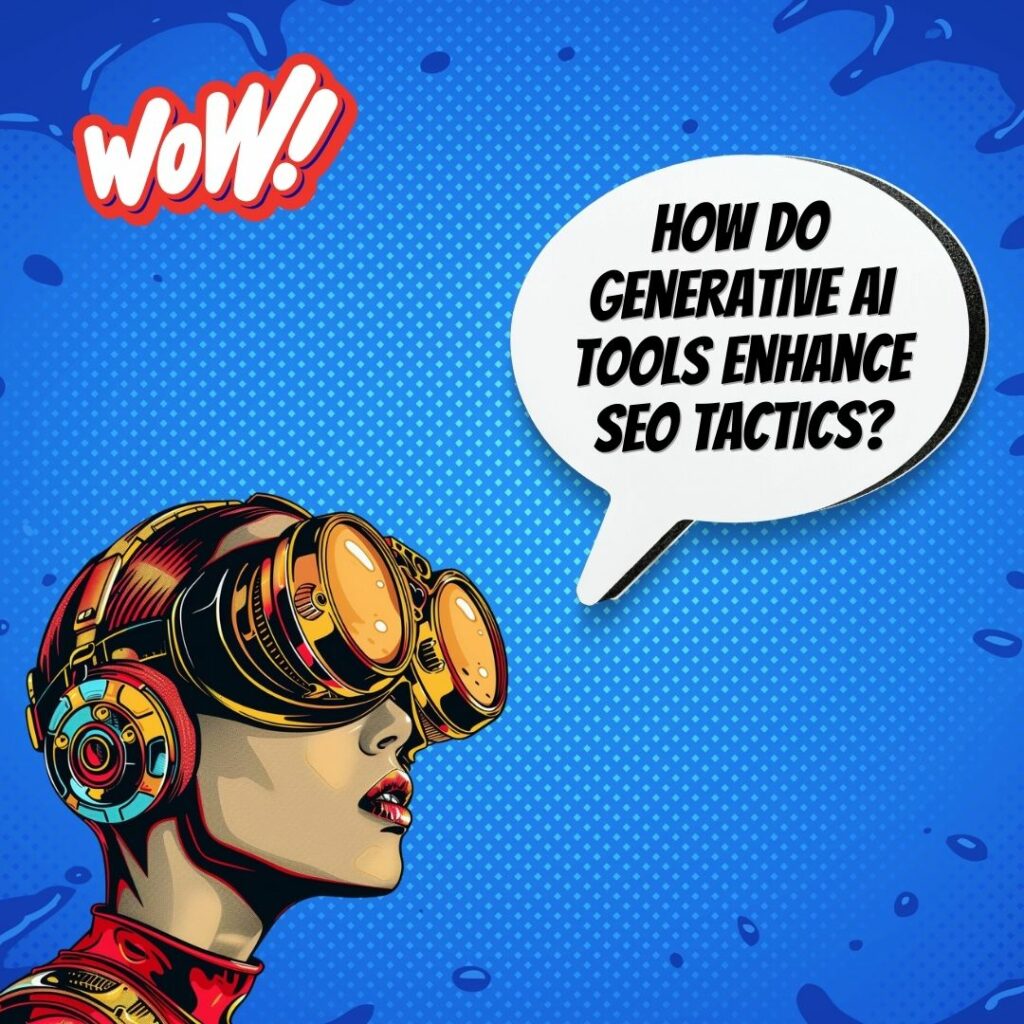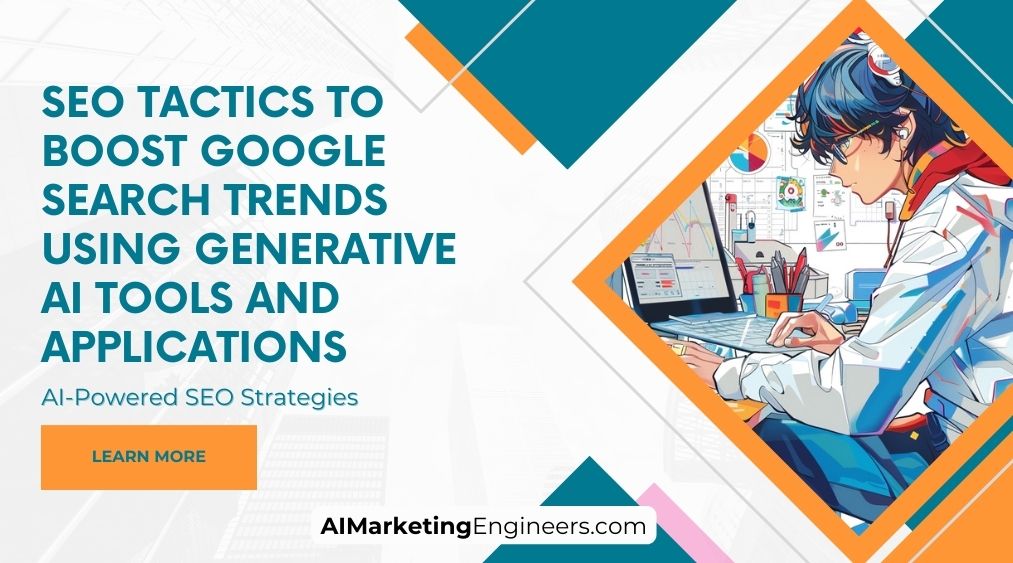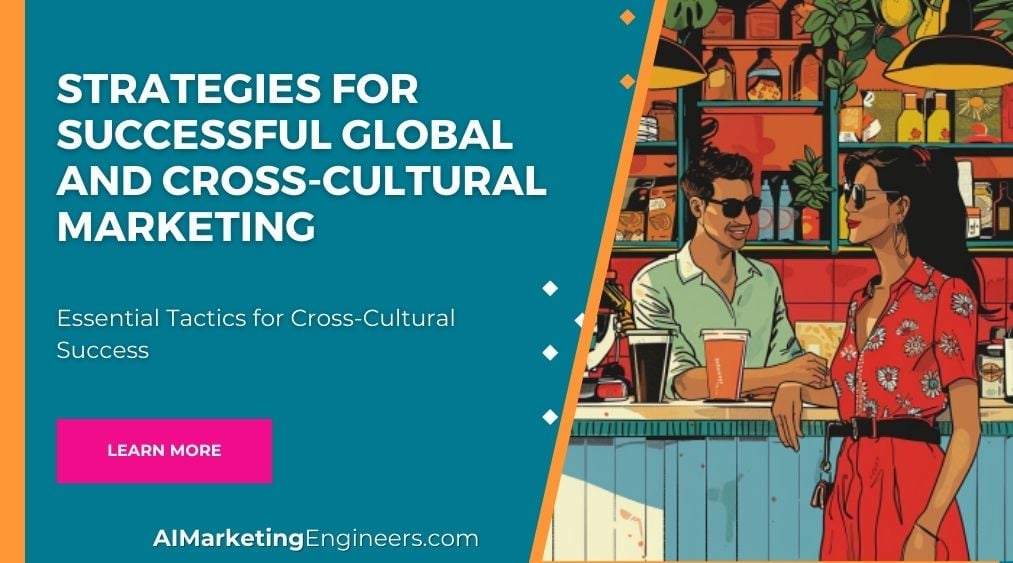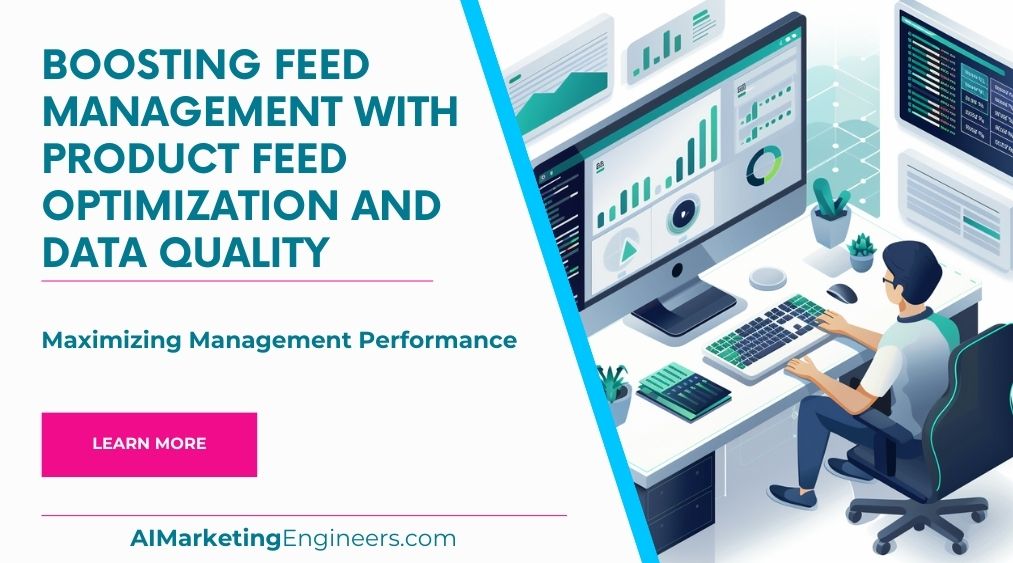Key Takeaways
✅ Content Quality and Relevance: Aiming for content excellence? Generative AI prioritizes high-caliber, authentic content that shows off your E-E-A-T (experience, expertise, authoritativeness, and trustworthiness). Google increasingly values content that feels more human, resonating with what real people find useful. Did you know that high-quality responses tailored to user queries positively affect your visibility in search results? By optimizing for these factors, your content can reach greater heights.
✅ Technical SEO and AI Integration: Don't fall behind – ensure your site's technical SEO is top-notch, meets Core Web Vitals, and employs schema markup for clarity. Did you know that around 53% of visits are abandoned if a mobile site takes longer than three seconds to load? Generative AI doesn’t just improve content creation but also aids keyword research and competitor analysis, offering a broad spectrum of SEO enhancements.
✅ Adapting to AI-Driven Search: The future is now, and it's driven by AI. To stay competitive, businesses must understand and integrate generative AI within their SEO approaches. Tools powered by AI not only track new trends but also refine your internal linking strategy and boost your content game. Are you ready to evolve with the digital landscape?
 Introduction
Introduction
Are you looking to get a solid edge over your competition in the grand digital chess game that is SEO? Unlocking the Power of Generative AI for SEO could be the strategy that topples kings and queens, placing your website firmly in the spotlight. Can you imagine bolstering your Google search trends simply by embracing the innovative tools AI puts at your disposal?
In a world where nearly 93% of online experiences begin with a search engine, missing out on the top-trends in SEO means handing victory to your competitors. This article doesn't just iterate over the worn-out pathways of traditional SEO tactics; it illuminates the path less traveled where generative AI intersects with strategic online marketing maneuvers.
As we dive into the realms of Content Creation and Enhancement, Competitor Analysis, and Advanced AI Tools, you'll gather invaluable insights to not just participate in the SEO game, but to redefine it. We’re talking strategies that are as forward-thinking as they are effective, capable of maximizing your return on investment (ROI) and bringing about tangible results.
Top Statistics
| Statistic | Insight |
|---|---|
| 65% of businesses generate better SEO results thanks to AI | This highlights the growing role of AI in crafting strategies that lead to enhanced online visibility and ranking on Google. |
| 67% of businesses see an improvement in content quality when using AI | Quality content is crucial for engaging users and increasing time on site, a key factor Google considers in rankings. |
| 68% of businesses get a higher content marketing ROI due to AI | Effective use of AI can mean smarter budgeting and better conversion rates, critical factors for any marketing strategy. |
| 37% of companies that don’t use AI don’t understand how it works | This gap in understanding AI could be a barrier preventing these businesses from leveraging new technologies to their advantage. |
| 93% of businesses review their AI-generated content before publishing it | This fact underscores the importance of maintaining a human touch in AI applications to ensure content remains relevant and authentic. |
The Impact of Generative AI on SEO
Have you noticed how search engines are becoming eerily good at understanding exactly what you're looking for? A lot of that is thanks to generative AI, a type of artificial intelligence that's making a splash in the world of SEO. By quickly analyzing heaps of data, AI is saving marketers time and helping them tailor content to what people are actively searching for. This means more accurate and relevant search results, enhancing user satisfaction and engagement. The integration of generative AI is fundamentally changing how SEO strategies are developed and implemented.
Enhancing Content Creation with Generative AI
Picture this: you're trying to fill your website with blog posts that hit the mark every time. Generative AI is now the secret weapon for creating high-quality blog posts that engage readers and drive traffic. It can also whip up unique meta descriptions that make your webpages stand out in the sea of search results. This technology ensures that content is not only relevant but also optimized for search engines. By automating content creation, marketers can focus on more strategic tasks, improving overall efficiency and output quality.
Optimizing Keyword Research and Title Tag Generation
The hunt for the perfect keyword is like looking for a needle in a haystack. But generative AI is like a supercharged magnet for this task. It sorts through countless possibilities to pinpoint relevant keywords. What about those attention-grabbing headlines you click on without thinking? AI is getting great at generating SEO-friendly title tags that can help your content rise to the top. This capability helps ensure that your content attracts the right audience and improves your visibility on search engines.
Streamlining Competitor Analysis and Performance Tracking
Understanding your competition is crucial, but it can be tedious. Generative AI simplifies this by dissecting competitors' strategies and helping you learn from them. With this intel, you can spot where you're rocking it and where you need to up your game. AI tools can provide detailed insights into your competitors' strengths and weaknesses, allowing you to adjust your strategies accordingly. This proactive approach can help you stay ahead in a competitive market.
Leveraging Tools and Platforms for Generative AI in SEO
Consider tools like SEMRush's Content Analyzer which marries generative AI with data analytics. It not only points out what's not working but also suggests strategies for fixing it. That's like having a seasoned SEO consultant on your team, available 24/7. Google is also integrating generative AI into its search capabilities, making it easier to find information online and deliver precise results. Utilizing these advanced tools can significantly enhance your SEO efforts and outcomes.
Preparing for the Future of SEO with Generative AI
The SEO landscape is ever-changing, and generative AI is one of the big disruptors. Those tried-and-true tactics we've all come to know? They may soon require a rethink. Businesses will need to adapt quickly to hold their own in a field that's getting more competitive by the minute. Embracing AI for enhanced SEO is becoming essential to stay ahead of the curve. However, it's also important to use these tools responsibly, balancing innovation with ethical considerations to achieve long-term success.
AI Marketing Engineers Recommendation
Recommendation 1: Leverage Generative AI to Enhance Content Quality: Utilize Generative AI tools to create high-quality, informative content that directly answers the questions your target audience is asking. Data show that quality content significantly improves your chances of ranking higher in Google search results. Remember, Google's algorithms prioritize content that demonstrates expertise, authority, and trustworthiness (E-A-T). By integrating AI tools, you can analyze top-performing content within your niche and generate material that aligns with these standards, potentially increasing your visibility in search trends.
Recommendation 2: Optimize for Long-Tail Keywords Using AI-Assisted Research: Engage in comprehensive keyword research using AI tools to uncover long-tail keywords that may be less competitive but highly relevant to your audience. Statistics indicate that pages optimized for long-tail keywords tend to rank better and attract more targeted traffic. These specific phrases can then be woven into your AI-generated content, enabling a more effective strategy to boost your presence in Google Search Trends and meet the nuanced needs of your customers.
Recommendation 3: Implement AI-Driven Semantic Analysis for Content Optimization: Apply semantic analysis with the help of Generative AI applications to optimize your content for topic relevance and user intent. These advanced tools can evaluate the structure and context of the best-ranking pages, allowing you to understand the essential subtopics and terms used by leaders in your field. By incorporating these insights into your content strategy, you're more likely to develop material that resonates both with your audience and search engine algorithms, potentially increasing your organic traffic and improving your Google Search Trend position.
Relevant Links
- Generative AI and SEO: Transforming Search Engine Optimization
- SEO Success with Google's Generative AI
- Optimizing Content with Generative AI for Enhanced User Experience
- Embrace the Future: AI's Role in Content Creation and SEO
Conclusion
As we've navigated the intricate relationship between SEO tactics and the groundbreaking capabilities of generative AI, one thing is clear: the digital marketing landscape is evolving, and it's doing so at an impressive rate. Harnessing the power of Generative AI for SEO isn't just beneficial; it's becoming essential for those aiming to stay ahead in the game. From the moment you start crafting meta descriptions to the ongoing process of competitor analysis, AI tools offer a sophisticated edge.
Content is king, but AI-driven content creation could be considered the power behind the throne. With platforms like SEMRush's Content Analyzer, creating blog posts that captivate and resonate with audiences is not just easier but also bears the hallmark of data-driven precision. Still, this technology isn't just about making tasks easier; it's about enhancing SEO practices to reach wider audiences effectively. Generative AI also revolutionizes how keywords and title tags are identified and leveraged, ensuring that businesses stand out in the crowded digital marketplace. The insightful analysis and performance tracking provided by these AI tools enable marketers to make more informed decisions, optimizing strategies for better visibility and engagement. This is not just a matter of following trends; it's about setting new ones.
As Google amps up its own use of generative AI in search functionalities, improving the accuracy and relevancy of results, businesses must adapt swiftly to maintain traction within Google Search Trends. But as we contemplate the future, a thoughtful approach must be taken. The prospect of AI for Enhanced SEO symbolizes not just advancement but also the need for responsible implementation. Marketers must balance innovation with authenticity, ensuring that the rise of AI amplifies human creativity rather than replacing it.
In summary, the convergence of SEO with generative AI tools is not just a fleeting intersection but a dynamic fusion paving the way for unprecedented growth and digital success. As businesses and marketers, it's time to embrace this transformative journey, staying curious, adaptive, and always mindful of the value we deliver to our audiences. Are you ready for the future of SEO?
FAQs
Question 1: What is generative AI?
Answer: Think of generative AI as a smart robot that can whip up new content like a chef makes recipes. It learns from what's out there and cooks up something fresh and tailored just for your taste.
Question 2: How does generative AI impact SEO?
Answer: It's a game-changer! Generative AI can make content better and help find the right keywords. It's like having a secret weapon to make your website stand out and catch more eyes in search results.
Question 3: What are the key benefits of using generative AI for SEO?
Answer: The big wins are saving you loads of time, pushing out top-notch content, upping your keyword game, and giving you an edge by using AI smarts to see what's next.
Question 4: How can generative AI be used for predictive content planning?
Answer: By looking at trends and what people are searching for, generative AI can predict what content will hit the mark, making sure your stuff is what everyone wants to read next.
Question 5: What role does generative AI play in enhancing SEO storytelling?
Answer: Generative AI can take boring SEO data and turn it into an exciting story. So, when you're showing the big bosses your results, it's not just numbers—it's a story of success.
Question 6: How does generative AI influence the future of internet searching and SEO?
Answer: It's like a crystal ball—generative AI might just change everything we know about searching online. To keep up, businesses will need to play along with these new rules or risk getting left behind.
Question 7: How can businesses integrate generative AI into their SEO workflows?
Answer: Start by seeing what you're already doing and where AI can chime in. Use AI for coming up with ideas, figuring out what words to use, and keeping tabs on your competitors.
Question 8: What are the essential steps to optimize a website for generative AI search results?
Answer: Make sure your content's ace—like really good, original, and trustworthy. Get your technical SEO ducks in a row and prep your content to play nice with how AI likes to read it.
Question 9: How can SEO professionals stay ahead in the era of generative AI?
Answer: Keep learning about AI, tweak your strategies to use AI tools, and stay on your toes to keep polishing your SEO game.
Question 10: What are the potential risks and challenges associated with generative AI in SEO?
Answer: Watch out for AI-created spam clogging up the internet, stay sharp with the constant changes AI brings to searches, and make sure the info you give people is rock solid—they gotta trust you, or it's game over.
Academic References
- Upgrow. (2023). Generative AI for SEO: Unlocking Next-Level Organic Ranking Strategies. Examines the emerging role of generative AI in the field of search engine optimization, touching upon its transformative implications for content development, keyword mining, and backlinking processes. This piece serves as a strategic blueprint for leveraging AI technology to elevate a website's visibility on Google.
- Workshop Digital. (2024). SEO for Generative AI and SGE Search Results. Discusses the vital impact of generative AI in crafting content that stands out for its authenticity and reliability, and how this affects SGE (Search, Google, and Engagement) search outcomes. It further delves into the technical SEO essentials and a deeper comprehension of AI model intricacies to optimize for visibility and ranking.
- Search Engine Land. (2023). 10 Ways to Leverage Generative AI for Advanced SEO. Offers a comprehensive list of ten actionable ways in which generative AI can enhance SEO practices. Ranging from the improvement of website hierarchies to the enrichment of content quality, this article shines a light on the synergy between AI tools such as ChatGPT and SEO efforts.
- Fast Company. (2024). The Impact of Generative AI on Google Search. Discusses Google's ongoing battle to preserve the integrity of its search results in the wake of generative AI's ascendance. It highlights issues concerning AI-generated content spam and Google's strategic response, along with its integration of AI to stay competitive.
- Forbes. (2024). The Future of Internet Searching and SEO with Generative AI. This prognostic narrative explores the transformative power of generative AI over internet search and SEO dynamics. It contemplates a scenario where traditional SEO strategies might become outdated and propounds a futuristic vision of information accessibility powered by AI.












